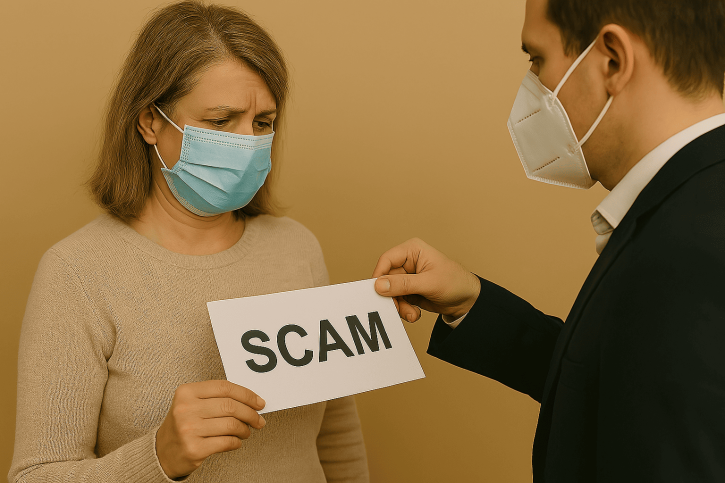A list of coronavirus scams for you to be aware of and stay clear.
Unfortunately, during difficult times some people use fear and compassion to take advantage of well-intentioned people. Most of us are trying to help our family, friends, and neighbors, while others are trying to use this time of uncertainty to steal money and personal information.
Over the last few weeks, coronavirus scams have been popping up all over. We know there are many good people in our community and communities around the country, and we want to make sure none of you fall prey to these schemes. So, we put together a list of scams for you to be aware of and stay clear.
- Coronavirus rumors – some people are calling or emailing saying they have products that prevent the virus, or they claim they can cure it. These are fake remedies. If there is a cure for COVID-19, you will hear about it on the news. You won’t receive a random call from someone offering a treatment. Hang up and block the number.
- Phishing scams – scammers are using fear to get personal information. They will call, text, or email, saying they have critical information about the coronavirus disease COVID-19. They will ask you for your address and other personal information. Don’t give them anything. Go to the World Health Organization (WHO) for important updates. You can also go to the Centers for Disease Control and Prevention (CDC) for information. Don’t click links sent to you in emails with information about the coronavirus either.
- Government checks – American’s making $75,000 a year or less will receive a $1200 check from the government sometime soon. Those who make more will receive less. This will be sent to you by check or direct deposit. If someone calls or emails you asking for your bank account number, credit card number, or Social Security number say no, and hang up. This person is a scammer trying to get your information.
- Robocalls – if you receive a robocall about a coronavirus treatment or a work-at-home job hang-up. These calls are illegal and fraudulent.
- Fake charities – many people want to help charities by donating money and items. If you receive a call or an email from someone asking for money for a charity connected to the coronavirus, be very cautious. One of the scams taking place is a group of people pretending to collect money for the World Health Organization (WHO).
If you’re contacted by anyone saying they are connected to WHO, and you are interested in giving a donation, let them know you will be contacting WHO directly. Don’t give them any personal information, and you may want to block them from your phone and email. It’s always best to go to the charity’s website to give a donation this way you will know where the money is going.
- Test kits and vaccinations – if you receive a call from anyone saying they have COVID-19 test kits or vaccinations hang-up. This is a big scam taking place right now. They are trying to sell products that haven’t been tested and don’t exist. The FDA will have all current information on test kits or vaccinations that are available to the public.
There are many coronavirus scams taking place now, and it’s essential to be aware of them so you won’t be taken advantage of. Below is a list of websites where you can find out current information about the coronavirus disease COVID-19 and how and where to donate money. If you do receive calls or emails from coronavirus scammers, contact the police to let them know you were contacted and how.

